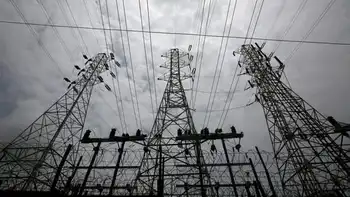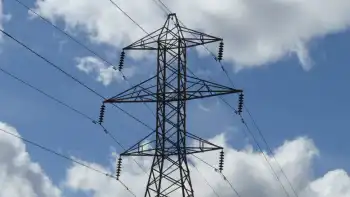Coal coalition targets congressional Democrats
By Associated Press
Protective Relay Training - Basic
Our customized live online or in‑person group training can be delivered to your staff at your location.

- Live Online
- 12 hours Instructor-led
- Group Training Available
International Coal Group wants other mining companies to take advantage of a U.S. Supreme Court decision loosening restrictions on corporate contributions to political causes.
ICG Senior Vice President Roger Nicholson said in an e-mail he wanted to target Democratic U.S. Reps. Ben Chandler of Kentucky and Nick Rahall of West Virginia, and Democratic U.S. Senate candidate Jack Conway in Kentucky.
"A number of coal industry representatives recently have been considering developing a 527 entity with the purpose of attempting to defeat anti-coal incumbents in select races, as well as elect pro-coal candidates running for certain open seats," he said in the e-mail.
The e-mail was first reported by the Lexington Herald-Leader.
Nicholson said in the e-mail that four companies, including Massey Energy, have already had "theoretical discussions" about the initiative and are developing an action plan. He proposed that interested companies meet in August during a West Virginia Coal Association event.
Massey Energy said in a statement that it "has not committed to being involved in a 527 at this time."
Mine safety advocate Tony Oppegard, a Lexington attorney and former government regulator, said he was concerned because the companies that seem to be behind the effort have poor safety records. "They've all had miners die recently," he said.
United Mine Workers regional vice president Steve Earle said the proposal was appalling.
"I think it's blood money. The coal industry absolutely wants to defeat anyone in Congress who wants to stand on the side of right," he said.
Press aides for Chandler and Conway declined comment. A Rahall spokesman didn't immediately return a phone message.
Nicholson defended the proposal in a statement, saying he wants to protect a coal industry under attack.
"The Obama administration, through the EPA, and the Congress controlled by Nancy Pelosi and Harry Reid, are taking steps that seek ultimately to eliminate coal production and its use," he said in a statement. "We believe that these goals are disastrous for Kentucky and West Virginia, and would constitute an egregious national energy policy that would make us more, not less, dependent on foreign governments."
Nicholson said the companies' interest is in protecting the industry from what he called overzealous environmental regulation. He objected to accusations that the industry is targeting politicians for their stands on mine safety.
"The coal industry is not opposed to reasonable and appropriate legislation that will truly improve mine safety," Nicholson said. "The notion that mine safety is not important to the industry is absurd the costs of safety lapses far outweigh, in both human and monetary costs, any alleged monetary gains by cutting safety corners."











